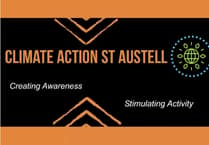ARE you familiar with the saying “you are what you eat”? Recent research is starting to show that we may be being affected by what we eat.
Some of this research appears to show that those who have anxiety and depression might have an altered balance of bacteria in their gut which can affect their mood. This is because when we eat, our bodies sends signals from our gut to our brains via the vagus nerve and these signals can be dampened down or enhanced by our nervous systems.
The most important thing to our brain is to keep us alive and when it comes to food it tries to work out if what we are about to eat contains energy that keeps us alive or is it something that will make us ill.
We can use food as a reward system (because of its apparent affect on the body) and this reward system can reinforce our behaviour in favour of certain foods which can subtly affect our choices when we go shopping for food.
Everyone’s experience about rewards from food and drink will vary from person to person and, therefore, we can alter our food intake to correlate with what we believe our rewards systems to be and how sensitive our systems are to responding to those rewards.
What about the foods that we dislike eating following a bad experience with them? If we have eaten a food we think has made us ill, then our brain can send us signals to avoid those foods and these signals can be difficult to unlearn leading us to avoid these foods even though they may be perfectly okay for us. This can be helpful in making sure we have avoided eating something poisonous but it can also be burden and lead to food phobias.
So our brains appear to influence what we eat but quite how is very individual to all of us depending on our previous experiences of reward and punishment with food, our genetics and what medications we are taking.
Lesley Pallett
Zenara Therapeutics





Comments
This article has no comments yet. Be the first to leave a comment.